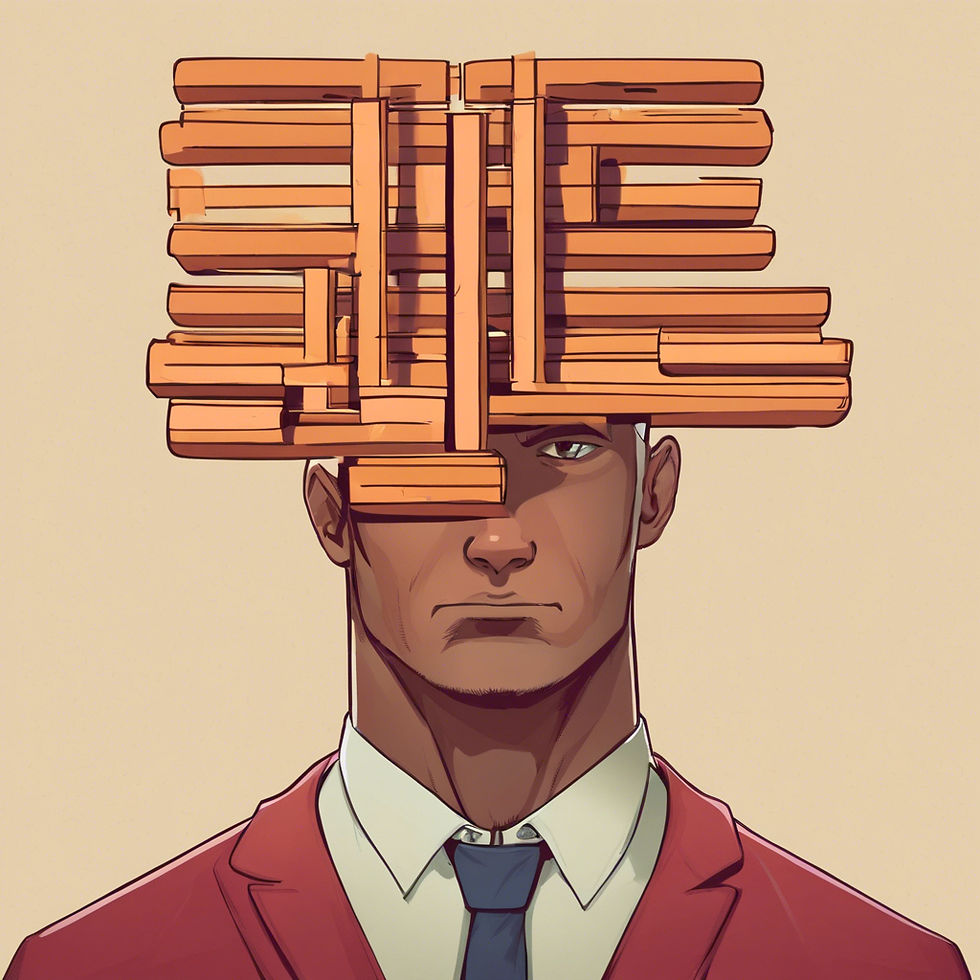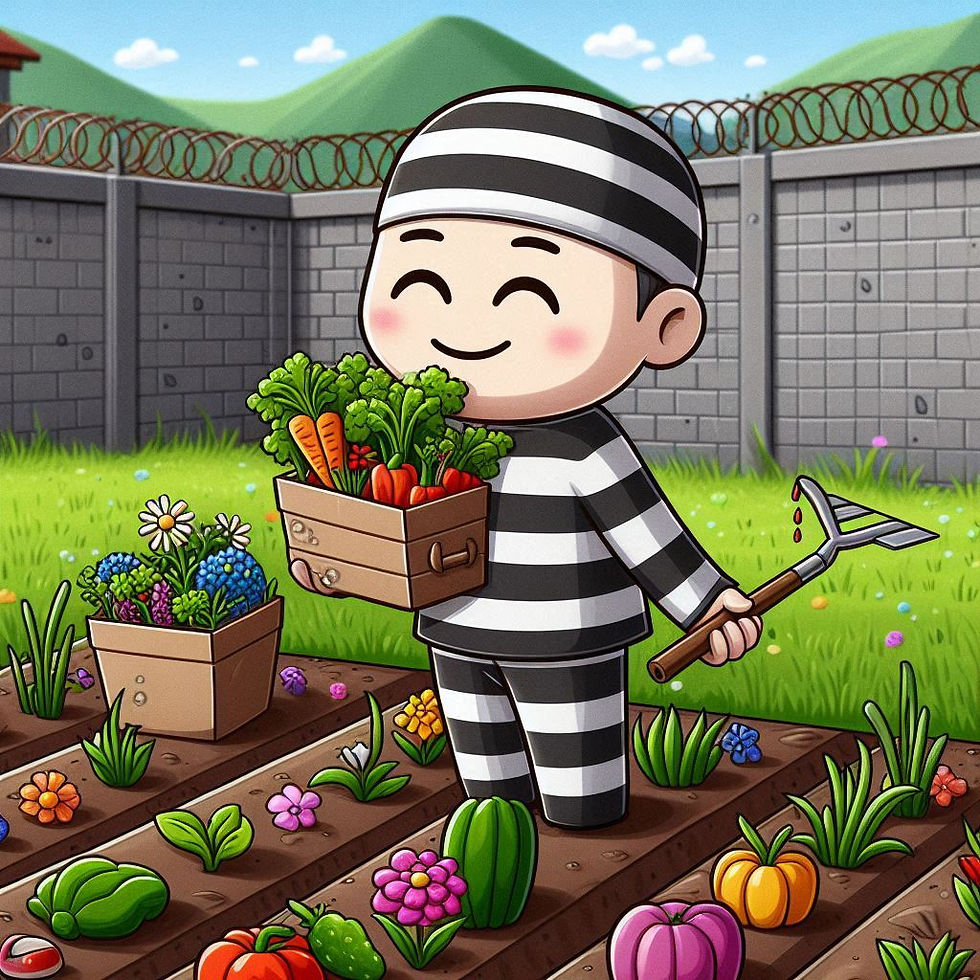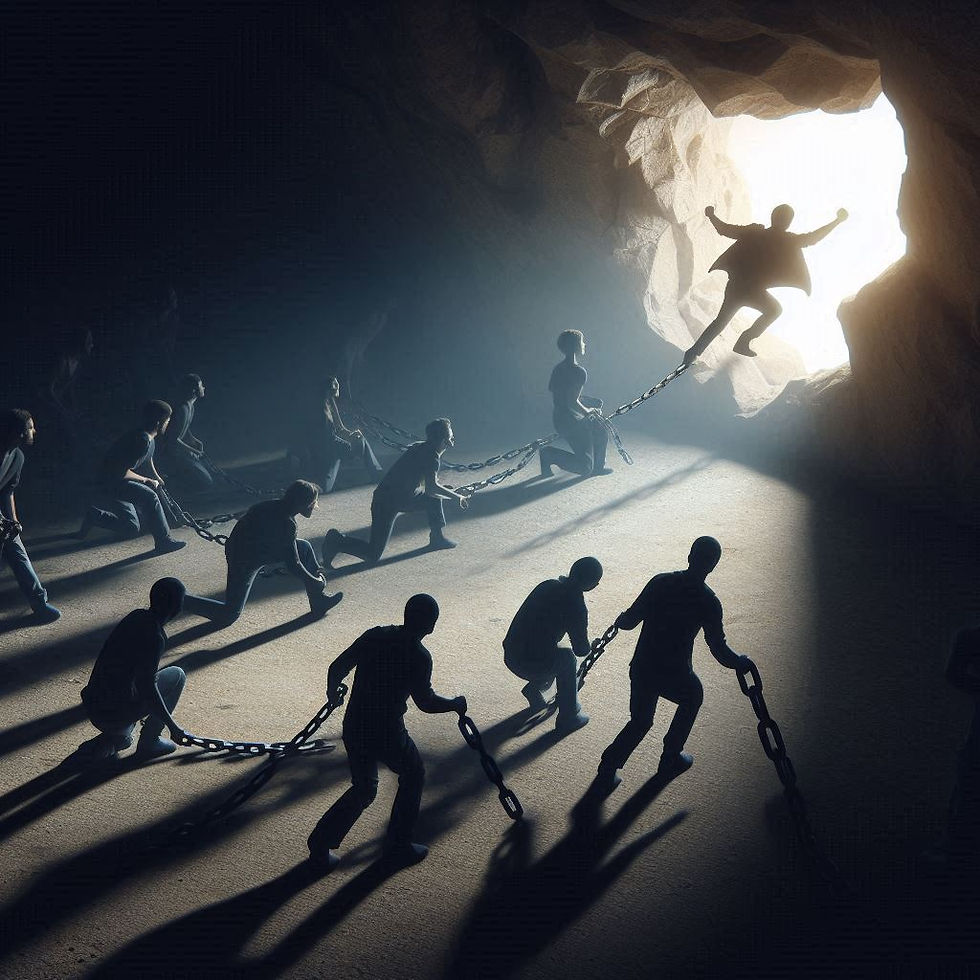Quote 5: "The best way to keep a prisoner from escaping is to make sure he never knows he’s in prison" - Fyodor Dostoevsky
- Dr. ARUN V J

- Nov 12, 2024
- 7 min read
Updated: Nov 14, 2024
Fyodor Dostoevsky, one of the most renowned Russian novelists, had a profound understanding of human psychology, shaped by both his experiences and observations of society. Born in 1821, Dostoevsky lived through turbulent times, enduring hardships that included time in a Siberian labor camp. His novels often explore the depths of the human soul, examining how individuals wrestle with moral dilemmas, the weight of guilt, and societal constraints.

This quote about an unseen prison speaks to a prison of the mind, where individuals are confined by their perceptions, often unaware of the limitations that have been subtly constructed around them. His own imprisonment, and the feeling of powerlessness that accompanied it, likely fueled his perspective on the mental prisons that society, culture, and one’s own thoughts can create.
Quote the History’s Silent Prisons: A Case Study
Throughout history, the concept of an "invisible prison" has surfaced in various forms. One prominent example is the plight of enslaved individuals in the United States before the Civil War. Generations of individuals were born into slavery, conditioned to accept it as a fixed reality. Historian Kenneth Stampp described this process as a “making of docility,” achieved through strict control, limited access to knowledge, and harsh repercussions for questioning authority. The intent was to construct mental barriers, so even if physical escape was possible, many would remain entrapped psychologically.
Research in psychology confirms this concept. Studies on "learned helplessness," first identified by psychologist Martin Seligman, reveal that when individuals repeatedly face situations where they have no control, they begin to believe they are powerless even when opportunities for escape exist. This learned helplessness is a psychological prison, a mindset that prevents growth or change because the person believes they are incapable of altering their situation.

Today's Invisible Prisons: Are We Really Free?
With the wealth of information at our fingertips, it may seem that we are more "free" than ever. Access to the internet, libraries, and the connectivity of the digital age should empower individuals to break down mental barriers and see beyond traditional constraints. However, despite this wealth of information, modern society faces its own invisible prisons. Social media algorithms, cultural biases, and societal pressures subtly shape our perceptions, telling us how to live, what to value, and how to define success.
For example, when we scroll through social media, we are often inundated with images and ideals that set standards for beauty, wealth, and success. If unchecked, these can create a prison of comparison and inadequacy, where we feel trapped by unrealistic expectations. Similarly, societal norms can keep us in mental prisons that restrict our views of career paths, relationships, and self-worth.
Plato's Allegory of the Cave, which appears in his work The Republic:
The story
Plato describes a group of prisoners who have been chained inside a dark cave for their entire lives. These prisoners face the wall of the cave and can only see shadows cast on the wall by objects passing in front of a fire behind them. For the prisoners, these shadows are their reality because they have never seen the actual objects or the outside world.
One day, a prisoner is freed and makes his way out of the cave. At first, he is blinded by the sunlight and overwhelmed by the vivid and diverse reality outside. Gradually, his eyes adjust, and he sees the world as it truly is. He realizes that the shadows in the cave were mere illusions and not the true form of reality. When he returns to the cave to share his discovery with the other prisoners, they refuse to believe him and cling to their familiar shadows.
The meaning
The allegory is a philosophical thought experiment that explores the nature of knowledge and belief. It's meant to represent how most people only understand a small part of reality because they rely on their senses. The allegory also demonstrates how education affects the human soul.
The role of the enlightened philosopher
Plato and Socrates believed that enlightened philosophers should "return to the cave" to help others understand the nature of the world.

Breaking Free: Unleashing the Power of Human Potential
There is a striking phenomenon in human behavior: once a limitation is broken, it becomes easier for others to surpass it. This is vividly seen in sports, where once a "unbreakable" record is shattered, other athletes soon follow suit. The four-minute mile, for example, was once deemed physically impossible for humans to achieve. When Roger Bannister broke that barrier in 1954, dozens of athletes began breaking it soon after. This illustrates how belief in a limitation can be more binding than the actual limitation itself.
Another example of this power is seen when a parent gains seemingly superhuman strength to save a child in danger, lifting weights that would normally be beyond their capacity. In moments of crisis, the mind's protective limitations dissolve, allowing individuals to access extraordinary power and courage.
How to Overcome Invisible Barriers
So, how do we break free from these prisons? Here are some strategies:
Cultivate Awareness: Mindfulness and self-reflection are critical. By understanding how societal expectations or past experiences might be influencing your thoughts, you can start to identify invisible boundaries.
Challenge Limiting Beliefs: Just because something feels impossible doesn’t mean it is. Learning to challenge "truths" about yourself or the world can lead to breakthroughs in personal growth and achievement.
Seek Diverse Perspectives: Exposure to different cultures, histories, and ways of thinking can help you see beyond the constraints of your own mental prison. Reading widely, engaging in discussions, and traveling can reveal new paths.
Practice Resilience: Overcoming mental prisons often requires resilience. Facing challenges, adapting, and persisting despite setbacks builds the strength to break free from invisible barriers.
Actively Question Norms: Society’s invisible prisons are often upheld by unexamined norms. By questioning societal expectations, whether in career, family, or lifestyle, you can find a path that aligns more closely with your true values and aspirations.
Here are some actionable tools to break free
1. Awareness and Reflection
Daily Journaling: Encourage readers to write down their thoughts and feelings at the end of each day. This practice helps them reflect on their habits, identify patterns, and spot areas where they may feel restricted or unaware.
Mindfulness Meditation: Suggest setting aside 10-15 minutes daily for meditation to develop greater awareness of their thoughts and feelings, improving self-understanding.
2. Challenging Limiting Beliefs
List and Reframe: Advise readers to list beliefs or statements they say to themselves that start with “I can’t” or “I’m not.” Once listed, they should reframe these statements into positive possibilities (e.g., “I can’t learn this” becomes “I can learn this with practice”).
Question the Source: Encourage them to question where these beliefs come from—parents, culture, past failures—and to evaluate their validity in their current life context.
3. Continuous Learning and Growth
Try New Things Regularly: Suggest picking up a new skill or hobby that’s outside their comfort zone to challenge their mental boundaries.
Stay Informed: Reading books, listening to podcasts, or taking courses that challenge the status quo can open the mind to new perspectives.
4. Seek Diverse Perspectives
Engage in Conversations: Recommend talking to people with different backgrounds, experiences, and beliefs to broaden their understanding of the world and their place in it.
Join Forums or Groups: Online or local discussion groups related to topics of interest can expose them to new ideas and prompt introspection.
5. Accountability Partnerships
Find a Mentor or Accountability Partner: Suggest partnering with someone who can offer honest feedback and help identify blind spots or self-imposed limitations.
Check-ins: Regular check-ins with this partner can ensure they’re taking steps toward growth and not falling back into old patterns.
6. Embrace Discomfort
Push Comfort Zones: Suggest practical exercises, such as speaking up in meetings, networking, or taking up public speaking, to stretch personal boundaries.
Take Calculated Risks: Encourage making decisions that feel challenging but are aligned with personal or professional growth.
7. Cultivate Resilience
Practice Problem-Solving Skills: Provide examples of brain-teasers, puzzles, or real-life challenges that can help readers practice thinking outside the box.
Learn from Failure: Share stories or examples of how failures can be powerful learning opportunities. This helps shift the perception of failure from a 'prison' to a stepping stone for growth.
8. Develop Critical Thinking
Ask “Why” Multiple Times: Suggest using the “5 Whys” technique to dive deep into beliefs and assumptions to uncover underlying reasons or motivations.
Debate With Oneself: Recommend readers play devil’s advocate with their own opinions to see if they still hold up when challenged.
9. Set Boundaries and Disconnect
Limit Screen Time and Social Media: Encourage reducing exposure to content that subtly reinforces societal norms and expectations.
Digital Detox: Suggest occasional breaks from digital devices to foster original thought and diminish external influences.
10. Visualize Freedom
Vision Boards: Advise creating a vision board that represents what breaking free looks like for them—whether it's traveling, starting a new career, or simply living more authentically.
Future Self Visualization: Encourage readers to visualize their life in the future without current limitations and note down what steps they could take to get there.
These tools are designed to make people more aware of their mental and societal 'prisons' and empower them to take actionable steps toward breaking free.
Breaking Free is Possible
With today’s access to information, literature, and knowledge from across the globe, we are more equipped than ever to dismantle mental prisons. This awareness, combined with intentional action, can help us to reframe our realities, unlocking our potential and challenging what we once believed impossible. Dostoevsky’s words remain a timeless reminder: true freedom begins with understanding the prison and daring to break free.





Comments